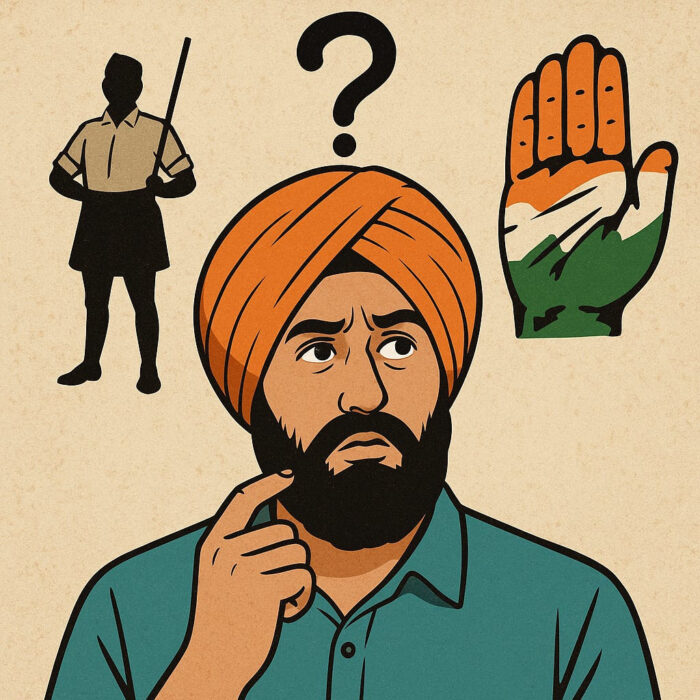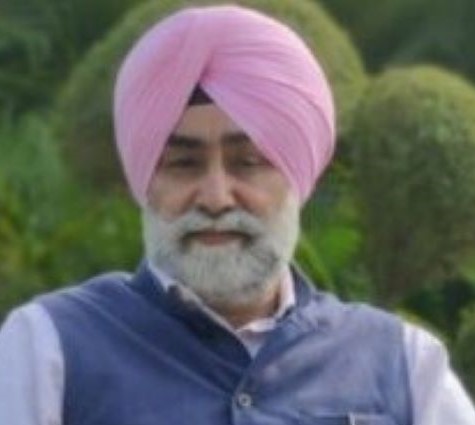 Prime Minister Narendra Modi’s invocation of the 1984 anti-Sikh massacres during the RSS centenary event is no ordinary aside. It touches a raw wound in Sikh memory that remains unsettled even four decades later. His remark—that RSS workers gave shelter to Sikhs during those horrific days—is politically significant, but its deeper relevance must be understood in Punjab’s fraught historical and electoral context.
Prime Minister Narendra Modi’s invocation of the 1984 anti-Sikh massacres during the RSS centenary event is no ordinary aside. It touches a raw wound in Sikh memory that remains unsettled even four decades later. His remark—that RSS workers gave shelter to Sikhs during those horrific days—is politically significant, but its deeper relevance must be understood in Punjab’s fraught historical and electoral context.
The 1984 carnage, triggered in the wake of Operation Blue Star and Indira Gandhi’s assassination, scarred the Sikh psyche forever. Thousands were butchered in the streets of Delhi and beyond. Congress leaders like Sajjan Kumar, Jagdish Tytler, HKL Bhagat and others were named by commissions and witnesses as perpetrators or instigators. Yet, ironically, Punjab has voted Congress back to power thrice since then—1992, 2002, and 2017. This selective forgetting, or perhaps a forced pragmatism, shows how political memory in Punjab is layered, fractured, and often subordinated to more immediate concerns.
Why then has Modi chosen this moment to raise the 1984 wound?
Several explanations stand out. First, Punjab’s next Assembly election is in 2027. The BJP, after breaking with its long-time ally Shiromani Akali Dal during the farmers’ agitation of 2020, stands isolated in Punjab. To rebuild ground, the party must convince Sikhs that it is not their enemy. Modi’s statement seeks to counter the deeply entrenched perception—spread for decades, ironically by the its erstwhile alliance partner themselves—that the RSS wants to absorb Sikhism into Hinduism, erasing its distinctiveness. Fear of assimilation has been the bedrock of Sikh distrust towards the Sangh. By reminding Sikhs that, in their darkest hour, “RSS workers sheltered you,” Modi is trying to recast the Sangh not as a threat but as a saviour.
Second, this framing puts the Congress once again in the dock. It forces the painful truth back into circulation: the state-sponsored massacres of 1984 were allegedly engineered by Congress leaders. The moral responsibility cannot be erased by time or electoral victories. In a Punjab where the Congress is trying to revive itself, Modi’s remark is an indirect but sharp strike.

Is former Member of Punjab Public Service Commission
A farmer and keen observer of current affairs
Third, there is a broader national context. The BJP knows it must expand beyond its Hindi-heartland base. In Punjab, it cannot succeed without addressing Sikh insecurities head-on. The “1984 card” is both an outreach and a reminder: that the real enemy of Sikhs was not the RSS or BJP, but the Congress which failed to control the massacre.
Of course, skeptics will view this as mere political opportunism. The timing—two years before the 2027 elections—suggests ground preparation. Yet, in politics, even opportunism can reshape narratives. If Modi can dent the deep suspicion Sikhs hold towards the RSS, he could begin to re-engineer Punjab’s political landscape, especially after the Akalis’ credibility collapse post-Kisan Andolan.
What remains uncertain is whether Sikhs are ready to reopen the 1984 wound, and whether they will accept the RSS as a misunderstood ally rather than a lurking threat. Modi has thrown the first stone into a still pond.
The ripples may take years to settle, but the fact that the Prime Minister chose to speak of 1984 at an RSS platform shows both a political calculation and an attempt to alter history’s script.